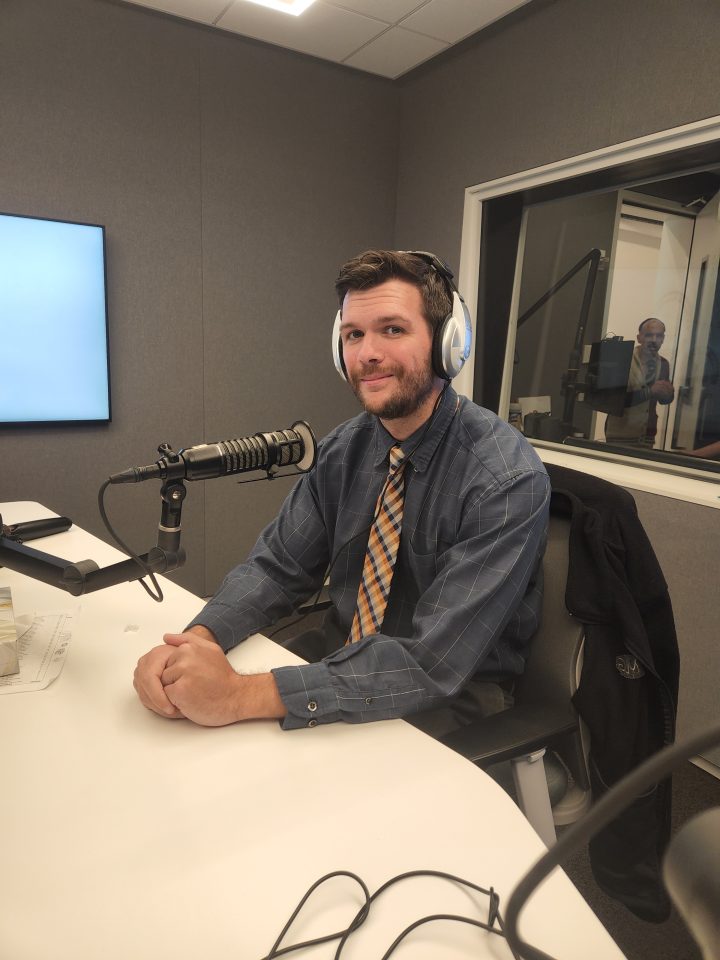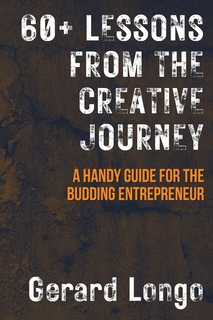An Interview with Gerard Longo
From starting a humble podcast in his childhood bedroom to building a full-fledged community that empowers independent artists, Gerard Longo shares valuable insights on the entrepreneurial mindset, the importance of values-driven branding, and how artists can take control of their careers.
The Indie Distributor recently sat down with Gerard, founder and CEO of Underground Music Collective, to discuss the evolution of his platform and the lessons he’s learned in the indie music industry.
The Indie Distributor: Thank you, Gerard, for joining today. We’re excited to have you here. You’re the founder and CEO of Underground Music Collective, an organization that aligns with our mission at The Indie Distributor—encouraging independent music and artist development. We wanted to take a moment to ask a few questions about your journey, your experience, and what led you to create this initiative. What set everything in motion for you?
Gerard Longo: It all started back in 2013 when it was just me, an idea, a USB mic, and a laptop in my childhood bedroom. Before I even had the mic, I found myself listening to old editions of my college radio show. I had a rare free weekend, and I needed a creative outlet. That’s when I decided to start a podcast. I had no idea what I was doing, but I just started. I created social media accounts, a logo, and started reaching out to artists, asking if I could feature their music—even though I had zero episodes and no audience. Surprisingly, many of them said yes. From there, I followed the trail.
Along the way, my friends from community theatre joined as co-hosts, and we ran the podcast for nearly two years, interviewing guests from five continents, hosting events, and immersing ourselves in the indie scene. It gave me a deep appreciation for what independent artists go through. At the time, I was working as a contractor in IBM’s Design Lab doing internal communications. When my contract ended in late 2013, I decided to lean into this creative pursuit. I was delivering pizzas and mowing lawns to make ends meet while trying to build something meaningful.
People often say, “Do what you love, and you’ll never work a day in your life.” But in reality, when you do what you love, you work harder than ever before. You find out very quickly if this is something you truly want to do. And I did.
Through 2014 and 2015, the podcast continued, but my life and my co-hosts’ lives started going in different directions. Eventually, I made the decision—perhaps not handled in the best way—to take the show solo. I moved to Bethlehem, Pennsylvania, where I had just gotten a new job, and I took the podcast with me. A few months later, I launched Lehigh Valley Underground, the first iteration of Underground Music Collective. I felt the podcast needed something more, so I started a blog covering local releases, attending shows, and teaching myself photography. That was the beginning of being fully immersed in a music scene every single day.
By 2018, after winning local awards and building a strong regional presence, I felt it was time to take things to the next level. I was 31, and I wanted to see if I could make this work in an industry town like New York or Nashville. Nashville won out because I had connections there and opportunities lined up. So, in late 2018, I rebranded Lehigh Valley Underground into Underground Music Collective and made the move.
Over the years, I’ve learned that taking the leap into entrepreneurship teaches you everything about yourself—personally and professionally. Although I haven’t been actively making music, I see so many parallels between what I do and what independent artists go through. We’re all building something from the ground up. It starts with an idea, but then it requires strategy, relationship-building, and an understanding of how to sustain it.
Now, UMC has evolved into more than just a blog or podcast. It’s an educational platform. We launched the UMC Academy in March 2023, where I help artists develop their big-picture strategy—who they are, why they do what they do, and how to create from a place of authenticity. It’s about defining your mission, vision, and value proposition. Your audience isn’t just your fans—it’s your collaborators, partners, and anyone making a business decision about working with you. Artists need to understand how to position themselves as a business.
The Indie Distributor: That’s such an important point—helping artists understand that their work isn’t just about creativity but also about entrepreneurship. Have you encountered pushback from artists who feel that focusing on business takes away from their art?
Gerard Longo: For the most part, the artists who come in as clients are already prepared for that conversation. But there have been exceptions, especially before I refined who my ideal client is—the “artist-preneur.” Some artists initially came in looking for a quick path to virality. They’d ask, “How do I go viral? How do I do what this person is doing?” My response is always, “That’s not the point.” The point is to lean into what makes you unique. How do we develop systems, structures, and goals that allow you to grow sustainably?
There’s a common misconception that success happens overnight. I moved to Nashville in 2018, and I remember hearing people say that Lizzo was an “overnight success.” But when you look at her journey, she spent years struggling—sleeping in her car, working odd jobs, and facing rejection. Then, when she finally had her breakout moment with *Truth Hurts* and *Good as Hell*, people suddenly assumed she came out of nowhere. That’s not how it works. Success is always years in the making.
That’s why UMC is focused on long-term, sustainable growth. We help artists define their values first because that’s what connects them with their true audience. It’s not about chasing trends. It’s about building an engaged community—your 1,000 true fans—who will support you no matter what. And that means thinking beyond vanity metrics like Spotify streams or Instagram followers.
The Indie Distributor: That’s a critical perspective. Many artists get caught up in numbers and forget that having a dedicated audience of even 100 engaged listeners is more valuable than having 50,000 passive followers. Are there specific recommendations you give artists for balancing their presence across different platforms while also owning their audience?
Gerard Longo: Absolutely. Social media is important, but it’s rented land. Algorithms change, accounts get suspended, platforms rise and fall. That’s why artists need to build an email list, cultivate a Discord or Patreon community, and create their own ecosystem. That’s where real, engaged fans live. At UMC, we help artists think about how to drive their audience toward platforms they control while still leveraging social media as a tool.
We also focus on education. Our Brand Camp program is a six-week deep dive into branding, goal-setting, and audience development. We also offer one-on-one mentorship, and we’re building the Underdogs Community—a hub for creatives across industries to learn from each other. Ultimately, we want UMC to be a resource for everything an independent artist needs.
The Indie Distributor: That’s incredible. Thanks so much, Gerard, for sharing your insights. Where can people find you and get involved with UMC?
Gerard Longo: Check out https://umcnashville.com for everything we do.
Follow us on Instagram at @UMCWorldwide, and you can also find me personally at @GerardLongo12. Our podcast, The Quinn Spin, is on all streaming platforms. And if you’re interested in *60+ Lessons from the Creative Journey*, it’s available on Amazon and IngramSpark. Looking forward to connecting!


